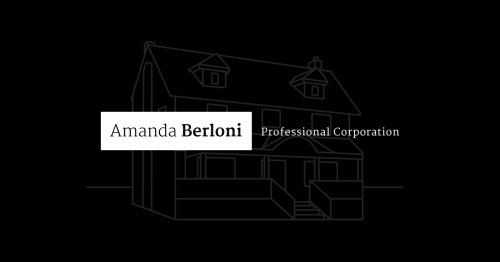Best Energy Regulatory Law Lawyers in Greater Sudbury
Share your needs with us, get contacted by law firms.
Free. Takes 2 min.
List of the best lawyers in Greater Sudbury, Canada
About Energy Regulatory Law in Greater Sudbury, Canada
Energy Regulatory Law governs the production, transmission, distribution, and consumption of energy, including electricity, natural gas, and renewable resources. In Greater Sudbury, a city recognized for its mining industry and resource-rich landscape, these laws ensure energy projects comply with both local and provincial regulations, environmental protections, and economic policies. Regulatory bodies, such as the Ontario Energy Board, oversee the rates charged by power utilities, licensing of energy providers, and standards for energy infrastructure. Navigating this evolving legal landscape is essential for businesses, property owners, energy producers, and consumers involved in the energy sector.
Why You May Need a Lawyer
There are several common reasons why individuals or businesses in Greater Sudbury may need legal assistance with Energy Regulatory Law:
- Negotiating contracts for energy purchase or supply
- Applying for permits related to energy production or distribution
- Addressing disputes with energy providers or government agencies
- Ensuring compliance with environmental regulations and standards
- Responding to land use or zoning challenges for energy projects
- Seeking renewable energy project approvals and incentives
- Managing the legal aspects of energy infrastructure development
- Understanding energy pricing and rate-setting mechanisms
- Ensuring fair treatment before the Ontario Energy Board and other regulatory hearings
Legal expertise can help you avoid costly delays, penalties, and compliance issues, and can also protect your interests when facing complex regulatory requirements or disputes.
Local Laws Overview
Energy Regulatory Law in Greater Sudbury is primarily shaped by provincial legislation from Ontario, as well as local bylaws and land use regulations. Key aspects include:
- Ontario Energy Board Act: Regulates utilities, energy rates, licensing, and consumer protection
- Environmental Protection Act: Sets out environmental assessments for energy projects, especially those affecting land, water, and air quality
- Electricity Act: Governs the generation, transmission, and distribution of electricity, including renewable projects and grid access
- Municipal Bylaws: Influence local land use, zoning approvals for energy developments, and property rights regarding energy infrastructure
- Cap-and-Trade and Emissions Laws: Affect larger industrial energy consumers and producers regarding greenhouse gas emissions
Greater Sudbury's distinct geography, focus on mining, and interest in sustainable energy projects can add an extra layer of regulatory considerations, particularly around environmental oversight and land use planning.
Frequently Asked Questions
What types of energy projects are common in Greater Sudbury?
Greater Sudbury sees a variety of energy projects, including mining-related energy consumption, utility-scale electricity distribution, renewable energy developments, and natural gas infrastructure. The region’s focus on sustainability is also increasing interest in solar, wind, and hydroelectric projects.
Do I need a permit to install solar panels on my property?
Yes, most solar installations require municipal permits and must comply with local bylaws, building codes, and potentially Ontario Energy Board regulations if grid connection is involved.
Who regulates energy rates and service quality in Greater Sudbury?
The Ontario Energy Board is the primary regulator for energy rates and service standards for electricity and natural gas in Greater Sudbury.
How are disputes with electricity providers resolved?
Disputes can sometimes be resolved through the Ontario Energy Board’s complaints process or, in complex cases, requiring legal mediation or formal hearings.
Can I produce renewable energy and sell it back to the grid?
Yes, but you must meet specific requirements set by your utility provider and obtain necessary approvals from the Ontario Energy Board and local authorities.
Are there incentives for adopting renewable energy in Sudbury?
Incentives may be available through provincial programs or utility companies, though these change frequently. A lawyer can help identify and apply for applicable incentives.
How do environmental regulations affect energy projects?
Most energy projects must undergo environmental assessments to ensure they do not adversely affect land, water, or air. Provincial and municipal laws govern these requirements.
What municipal approvals are required for new energy developments?
Approvals may include zoning amendments, building permits, environmental clearance, and public consultations, depending on the project’s scale and type.
How can a lawyer help with energy contract negotiations?
A lawyer can ensure the contract terms are fair, compliant with regulations, and protect your legal and financial interests. They can also assist in resolving any contractual disputes that may arise.
What happens if I violate an energy regulation?
Violating energy regulations can result in fines, orders to halt or modify operations, and legal action from regulatory bodies. Legal counsel is recommended to address any alleged violations promptly.
Additional Resources
If you need more information about Energy Regulatory Law in Greater Sudbury, consider reaching out to these bodies and organizations:
- Ontario Energy Board - Regulates energy rates, licensing, and consumer protection
- Greater Sudbury Municipal Government - Provides local bylaw and zoning information
- Ontario Ministry of Energy - Offers policy guidance and renewable energy programs
- Ontario Environmental Registry - Publishes environmental assessments and notices
- Canadian Renewable Energy Association - Advocacy and resources for renewable energy
- Local Law Societies - Listings of qualified energy regulatory lawyers
Next Steps
If you believe you require legal assistance with Energy Regulatory Law in Greater Sudbury, consider following these steps:
- Collect all relevant documents about your current energy project or issue
- Identify your specific needs, such as contracting, regulatory compliance, or dispute resolution
- Consult with a local lawyer who specializes in energy regulatory matters
- Prepare a list of questions and concerns to discuss in your first consultation
- Follow your lawyer’s guidance in navigating applications, hearings, or negotiations
Acting early and seeking knowledgeable legal support can help you save time, manage risks, and ensure your operations or interests are protected in the highly regulated field of energy in Greater Sudbury.
Lawzana helps you find the best lawyers and law firms in Greater Sudbury through a curated and pre-screened list of qualified legal professionals. Our platform offers rankings and detailed profiles of attorneys and law firms, allowing you to compare based on practice areas, including Energy Regulatory Law, experience, and client feedback.
Each profile includes a description of the firm's areas of practice, client reviews, team members and partners, year of establishment, spoken languages, office locations, contact information, social media presence, and any published articles or resources. Most firms on our platform speak English and are experienced in both local and international legal matters.
Get a quote from top-rated law firms in Greater Sudbury, Canada — quickly, securely, and without unnecessary hassle.
Disclaimer:
The information provided on this page is for general informational purposes only and does not constitute legal advice. While we strive to ensure the accuracy and relevance of the content, legal information may change over time, and interpretations of the law can vary. You should always consult with a qualified legal professional for advice specific to your situation.
We disclaim all liability for actions taken or not taken based on the content of this page. If you believe any information is incorrect or outdated, please contact us, and we will review and update it where appropriate.










